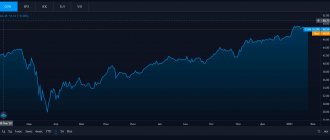It is traditionally believed that the investment business, like the investors themselves, is one of the most conservative methods of capital management, as opposed to, for example, such active types of work with assets as trading or entrepreneurship.
However, this rather primitive view of investing as passive work with assets has nothing in common with real business, where, in addition to the usual investment instruments - real estate securities and bank deposits, there is a decent layer of investment culture, which is called alternative investments.
Unfortunately, it should be noted that, despite the existence of alternative investments, for many hundreds of years there has been no relatively clear definition of this phenomenon either in economic science or in the practical segment of money management. In general, alternative investments can be defined as assets, tangible and intangible assets that are attractive for investment:
- not having a standard market assessment (such as exchange-traded assets)
- their market conditions are difficult to account for and predict
- non-standard methods for determining their true value, due to both the uniqueness of the objects and investment assets themselves, and the factors of demand for these assets.
This group of investments includes various values, the demand for which is formed by fairly narrow social groups. These are special financial instruments, precious stones (see Investments in precious stones and jewelry) and metals, objects of artistic and antique value, and intellectual property.
As a rule, there are special trading platforms for alternative investments, for example, auction houses or special branches on stock or commodity exchanges where trading in these instruments takes place.
This article will talk about what alternative investments are, what they consist of, and what interesting features of investing in them exist.
Alternative investments and their examples.
Alternative investments are non-traditional investments of capital that extend beyond traditional stocks, bonds and mutual funds. Such assets are typically used by advanced investors to diversify their portfolio. The main reason for investing money in alternative areas is to own some assets that do not "bounce" up and down due to the atmosphere in the stock market.
What are alternative investments?
Despite their name, these investments are not at all exotic or complex. They are added to investment portfolios for diversification and are valued because their values are not correlated between stocks and bonds. We'll show you 9 alternative investment options, tell you how they work and which investors they might be of interest to.
Celebrity clothing and items
Did you know that Marilyn Monroe's white dress (the same one) was sold at auction for $4.6 million? Of course, cheaper than a Munch painting, but still. It's probably worth investing in the purchase of such things.
At auctions, clothes and personal belongings of deceased celebrities are worth more than living ones. If the star died recently, then the posthumous sale of his property can bring considerable benefits to the investor.
The cheapest items are autographs, then rare concert posters, booklets, programs, riders, then things and, finally, clothes.
By the way, they sell anything. For example, James Bond's (that is, Daniel Craig's) swimming trunks were sold for $71,000 in 2012, and a jar of Bragelina's breath (google it yourself) went for $530. But the trashiest thing is Scarlett Johansson's used handkerchief. Believe it or not, it was sold at auction for $5,300. Although no, Britney Spears' chewing gum, sold in 2004 for $14,000, probably looks more trashy.
And here’s another interesting article: Investment portfolio for November 2019: gifts for yourself
Hedge funds
A hedge fund is something like mutual funds at maximum speed. Hedge funds take money from investors and buy securities, just like mutual funds, but the success of a hedge fund is determined more by the skill of the manager than by performance in the market as a whole.
Advantages:
• They are generally less regulated and restricted than mutual funds. • Can usually buy almost any investment asset they want. • They are often led by managers who have superstar status in their field. • Traditionally designed to avoid correlation with general markets.
Flaws:
• Investors do not always know exactly what assets are owned by the fund. • Investors often have limited access to funds. • Can be quite expensive: The traditional hedge fund pricing model was 2% annual fee + 20% profit.
For whom is this option preferable?
Hedge funds are designed for “sophisticated” investors who follow a sophisticated investment strategy. In most cases, you must be an accredited investor to participate, which means you must have a minimum level of assets and income.
Wine and whiskey
Jokes aside. If investing in clothes and belongings of celebrities is more of a joke option, then the resale of expensive vintage wine, whiskey, champagne and other alcohol can bring investors a good profit.
To begin to understand wine, you need to familiarize yourself with specialized literature, communicate with professional sommeliers, equip the wine cellar according to all the rules (so that the wine does not go to waste), and work at “Red and White”.
According to experts, a bottle of vintage wine doubles in price in about 5-7 years. If you put the resale of branded alcohol on stream, you can get up to 30-50% per annum.
By the way, the most expensive bottle of whiskey was auctioned in Hong Kong quite recently. Macallan Scotch whiskey, aged in cask from 1926 to 1986, sold for $1.1 million. There were 12 of these bottles in total, and all of them were painted by the artist Valerio Adami. But other lots did not reach this price.
It is clear that such alcohol is not taken for drinking.
Precious metals
Precious metals like gold or silver are not only a beautiful basis for prestigious jewelry and products. They can also be stand-alone investments.
Advantages:
• Widely seen as an insurance option against inflationary shocks. • Does not correlate directly with the stock and bond markets.
Flaws:
• There is no possibility of receiving dividends or making any profit in any other way. • Compared to the stock market, they have low long-term returns. • Can be very costly if you choose to hold them (plus high fees).
For whom is this option preferable?
Precious metals are best suited for investors who want to hedge their positions in other investments, especially during times of soaring inflation.
ESMA Guide
The European Securities Market Authority (ESMA) has published a report with Guidance on the key concepts of AIFMD.
If you are interested in setting up investment funds in Europe, check out this report. It contains the following definition:
“The following characteristics must show that the company is a collective investment undertaking referred to in Article 4(1) of the AIFMD. The characteristics are:
- the enterprise does not have a general commercial or industrial purpose;
- an enterprise pools together capital raised from its investors for investment purposes with the aim of generating a pooled return for those investors;
- The owners of the property rights or shareholders of the company - as a collective group - do not have complete management or control. The fact that one or more, but not all, shareholders are given full discretion or control should not be taken as evidence that the enterprise is not a collective investment undertaking.”
Futures
Futures are contracts in which buyers and sellers agree to exchange an asset at a future date at a specified price. Futures are often used to hedge (insure) other investments if the investor expects the price to decline in the future. They can also be used to think about future price movements.
Advantages:
• Can act as a tool for insuring your other assets. • Credit and margin requirements mean you only need to contribute a portion of your investment. • Very liquid market.
Flaws:
• Speculative assets. • It is possible to lose more money than was originally invested.
For whom is this option preferable?
Futures can be used by investors who want to hedge other investments, as well as by those who expect to make speculative profits.
Bonsai
A young bonsai, an ornamental dwarf plant, costs about $500. But a hundred-year-old one can be sold for 50 thousand or more.
But, of course, you don’t need to wait that long. 10-year-old trees go for prices of about 5-6 thousand dollars. An income of 100% per annum is not bad. Naturally, a bonsai needs to be well looked after, and you should buy it in a specialized store with a certificate and all other supporting documents.
Commodities
Commodities are products such as oil, gas, timber, coal, soybeans, wheat, etc. They include a wide range of raw materials and natural resources. You can buy raw materials yourself or invest in funds that work with them.
Advantages:
• Very good returns are possible. • Good insurance against inflation. • Diversified relative to other asset classes.
Flaws:
• Products can be highly variable. • They carry with them a wide range of risks associated, including with unrest, the state of affairs within the country, and international currency. • The fund manager may use speculative futures.
For whom is this option preferable?
Investors who are looking for diversification and alternative investments in non-traditional markets are good candidates for investing in commodities.
Computer games
Yes, yes, we will talk about Steam and Steam-like services. Absolutely right, the algorithm of actions here is similar. To invest in a computer game, you need to order it or write it yourself, and then put it up for sale.
Monetization options are similar to those with a mobile application.
It is important to understand that all of Steam has already been taken over by primitive indie games, and in order to make money from this, you need to show the world something truly original.
Alternatively, you can invest in developers or a specific game by asking for a percentage of the royalties.
Here's another interesting article: Where can you invest on the Internet?
Another option is to simply buy shares of the same Blizzard. And now you are already an investor in computer games.
Real estate
Real estate is land and/or buildings on it. In terms of investment, real estate can either be purchased directly or through various investment vehicles such as real estate investment trusts.
Advantages:
• Real estate can provide cash flow through rental income. • Real estate allows you to cope well with periods of inflationary growth.
Flaws:
• Individual properties may experience significant declines in value. • Real estate is generally more illiquid than other investment options.
For whom is this option preferable?
Such assets are well suited for investors who believe in the long-term health of real estate markets and are looking to diversify their portfolio. And investors who don't yet own real estate can benefit even more from diversification.
Websites and online stores
The essence of the method is simple:
- you create from scratch or buy a ready-made website;
- write or buy articles on it, tailoring them to a specific request;
- get traffic from search engines and social networks;
- hang up advertisements or sell some service/products;
- PROFIT!
It sounds simple, but in reality, behind each step there is hard work and great responsibility. And you never know where something will shoot and where something will bomb.
If you create a content website and place advertising on it, you can achieve payback in 6-12 months. More sites - more income.
It’s more difficult with online stores. Here you need to debug logistics, communicate with clients, work out all stages of the chain. In short, this is a full-fledged business, and never a passive investment.
It makes sense to create and promote a showcase - i.e. in fact, the delivery of goods and all other matters will be handled by the real store. The investor will receive his reward for each lead (purchase).
Collecting
Collectibles include rare coins, works of art, antiques or alcohol.
Advantages:
• Personal collecting desires and aspirations can be satisfied. • Collecting is generally unrelated to, and therefore uncorrelated with, the stock and bond markets.
Flaws:
• Purchasing assets may cost large commission costs. • The value of some collectibles, such as coins, may be limited by the intrinsic value of their metal. • May be illiquid. • May have higher tax rates on sale than proceeds from any other income options.
For whom is this option preferable?
Such alternative investments attract collectors who attach emotional value to works of art. But they can also traditionally supplement their investment portfolios with them. Some collectibles have truly enormous price tags.
ESMA definition
The ESMA report defines a number of terms for the purposes of its guidance. These definitions include the following:
A “general commercial or industrial purpose” is defined as “the purpose of implementing a business strategy, which includes such characteristics as management and primarily as:
- commercial activities involving the purchase, sale and/or exchange of goods or products and/or the provision of non-financial services,
- production activities, including the production of goods or the construction of real estate,
- combining the 2 points above.”
"Total enterprise management or control" is defined as "a form of direct and ongoing management and decision-making - (whether exercised or not) on operational matters relating to the day-to-day management of the assets of enterprises, and which extends significantly beyond the normal exercise of a decision or control through voting at shareholder meetings on matters such as mergers or liquidations, elections of shareholder representatives, appointment of directors or auditors, or approval of annual reports.”
Crowdfunding
Crowdfunding platforms allow investors to take ownership of young startups. Whereas previously young companies could only receive funding from "English investors" or venture capitalists, they can now raise money from any source.
Advantages:
• The startup may have huge profits in the future. Especially if the company goes public. • Crowdfunding allows absolutely any investor to gain access to young companies. • Most platforms have an extensive menu of different investment options.
Flaws:
• A startup can be very risky - the investor risks losing all of his investment. • About half of all startups fail within the first four years of operation.
For whom is this option preferable?
Alternative investments in crowdfunding platforms are a good option for investors who are looking for access to new companies planning to develop and release a product that aligns with their values and interests.
Alternative investing in Russia
The alternative investment market is growing rapidly due to its very attractive features in the current economic situation. The Western world has long understood this and non-traditional investments are very common there and have proven their worth and effectiveness.
On the territory of our country, interest in such transactions is slowly but surely emerging and growing steadily.
Current directions of alternative investments in Russia:
- purchasing jewelry at the Diamond Exchange in Moscow, in a fund founded
- purchasing antiques and other artistic treasures on the Sotheby's Russia exchange
- Direct and financial alternative investments have developed quite well in Russia (a fairly large number of banks already provide similar ones))
- investments in media, trade, healthcare
- venture investments from Groupon, Alliance Rosno.
Over time, more and more similar funds and institutions will appear that provide similar services in Russia. Precisely because diversification is the key to profitable and reliable investments, the market will certainly move along this development path.
The problems of developing non-traditional (alternative) investments in our country are:
- poor awareness of investors about the possibility of investing in non-traditional objects
- lack of successful examples
- additional work in the form of assessment, storage, transportation of such objects.
Venture capital
Venture capital companies (venture funds) are like advanced versions of crowdfunding platforms. The managers of such companies collect money from investors and invest it in companies at various stages of activity.
Advantages:
• Professional managers are more effective when it comes to finding promising young companies. • These are alternative investments that can provide higher returns than other asset classes.
Flaws:
• It can be difficult to gain access to top tier VC (venture capital) companies with high investor requirements. • Investing in startups is inherently risky and volatile. • Funds usually work with investors who have large personal capital.
For whom is this option preferable?
Venture capital funds are an option for experienced investors who can handle not only high-yield but also high-risk capital.
Pedigree animals
We are talking about breeding and selling purebred stallions, cats, dogs, parrots and other little brothers of ours.
Here you definitely need to pay attention to the pedigree - after all, even a purebred puppy that does not have significant ancestors can be sold for literally half the price.
It is better to start investing in animals by getting to know the breeders - these are people who breed purebred animals and sell them as babies to future investors. And everything else - feeding, vaccinations, training - lies with the new owner.
It is also important to distinguish between show animals and hunting/working animals. Their prices are also different, as are their growing methods.
Private equity
Investing in private stocks means buying shares of companies that do not trade on public stock exchanges. This could be an interesting option to participate in the development of a new company.
Advantages:
• May offer the potential for high returns, especially if the company eventually goes public in an IPO. • Private companies do not have to disclose information about their performance to the public.
Flaws:
• Investing involves high risk. • May require multi-year investment to be successful.
For whom is this option preferable?
Private equity is suitable for investors willing to take on additional risk in exchange for potentially high returns. It is also a suitable option for those who can afford to meet multi-year investment commitments.
Although most of the financial media's attention is focused on stocks and bonds, there are many alternative investment routes around the world. Most of them offer trading patterns that are not correlated with traditional markets, and each also has a number of pros and cons.
Registration of a joint venture
The FCA's response to question 2.47, set out in the above document, states:
Joint ventures are often a combination of equity and experience, with one partner having the necessary management experience and an equity partner participating in more important strategic decisions. The parties may also hire an independent person to manage the business. These factors do not necessarily mean that the entity qualifies as an AIF. Such a company commitment may still be defined as a joint venture if strategic financial and operating decisions are under the control of all parties. Each party must constantly participate in the overall strategic management of the enterprise.
Traditional investments
Most financial market participants include traditional types of investment:
- financial investments (bank deposits and deposits both in rubles and in the currencies of other countries);
- stock market (purchase of shares, bonds, shares in investment companies);
- real estate (purchase of real estate for subsequent resale by increasing prices in growing markets);
- financial market Forex (speculative transactions with currency, most often trust management);
- precious metals market;
- own business (opening and developing your own business).
All forms of traditional investing require minimum amounts for the so-called “entry into the market” (starting investing) and small risks, which market participants themselves and even the state try to minimize. You don't need any special knowledge to start investing in traditional areas. This is especially pronounced if you transfer your funds into trust management of a specialized management company. In this case, all that remains is to wait, watch and monitor the work.
Startups
If at the end of the last century, the richest people on the planet included businessmen with dynastic roots and businesses passed on from generation to generation (most of these businesses are manufacturing and financial services). In second place are the players of the foreign exchange and stock markets (the so-called speculators), but today at the beginning of the 21st century the situation has changed. Industrialists and dynastic billionaires and speculators have not gone away. But among them, among the richest people in the world, a young generation of businessmen appeared who quickly became billionaires by investing their money in so-called startups. Investing in startups is one of the riskiest types of investment. In this segment, funds are invested at the initial stage and “work” for the entire life of the project or enterprise. The profit in such “big-shot” projects is calculated in very large sums. It is important for an investor not to make a mistake in choosing, which requires deep knowledge of the market.
Collectible coins
These are coins issued in a limited edition (and sometimes in a single copy) and intended for distribution to a narrow circle of collectors (unlike bullion coins, which are produced en masse).
After sale, collectible coins usually end up at auctions, where they are resold at a higher price.
The most expensive collectible coin was the 1794 dollar, the first coin minted by the government of the new United States. In 2013, it was sold for $10 million.











